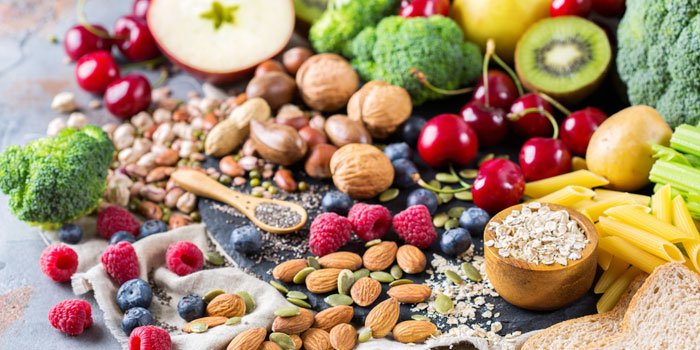No products in the cart.
Uncategorized
How Diet Can Help Slow the Ageing Process
While getting older every year, unfortunately, isn’t optional – they way you age is. The food that you eat and the lifestyle you lead have a significant impact on the process of ageing. That means you have the power to speed it up or slow it down. I don’t think we’re alone in saying that we’d like to slow it down as much as possible. Choosing the right foods is one way to do this.
Australians typically have varied diets, however we consume a lot of junk food and processed snacks. This is known as ‘discretionary food’ and a massive 35% of our average energy intake falls into this category. These foods are heavily refined and processed, and lack the nutrients our bodies need to thrive. They also tend to be full of sugar, oils, and other chemicals, such as emulsifiers, colourings and preservatives. Putting too much of these things in our bodies can cause damage to skin cells, brain cells and connective tissue. If left unchecked for too long, this damage can also lead to inflammation and oxidative stress, which are often at the root of diseases that can shorten your life, as well as reduce your quality of life as you age.
Another concerning statistic about Australian eating habits is that less than 7% of Australians are meeting their daily vegetable intake requirements. On the up side, 75% of Australians are eating some vegetables every day, however the amount needs to increase for the population to see the health benefits. In fact, eating a diet rich in vegetables may reduce risk for stroke, cancer, heart diseases and type-2 diabetes.
Vegetables provide a source of many nutrients, including potassium, fiber, folate (folic acid) and vitamins A, E and C. Ensuring your body is packed with these nutrients can help slow down the ageing process in a number of ways. Potassium, for example, can help you maintain healthy blood pressure. Dietary fiber from vegetables can also help reduce blood cholesterol levels, which can lower your risk of heart disease.
It’s easy to add some vegetables to your meals so this is one of the simplest steps to take to improve your overall health. Other foods that you should consider to improve the ageing process are as follows.
1. Olive Oil: Olive oil is an excellent source of monounsaturated fatty acids (MUFAs) and omega 3. As such, a daily serve of olive oil can give your body the healthy fats that it needs to thrive.
2. Yogurt: Protein and calcium are vital for your body to function. You can easily get your requirements of these from a serve of yogurt. Yogurt is also a source of probiotics or ‘good bacteria’. Probiotics act as internal healers as they keep pathogens in check, help with digestion and nutrient absorption, and balance the immune system. They regulate movement through our intestine and help our body to produce vitamins, absorb minerals and eliminate toxins.
3. Dark Chocolate: In moderation, dark chocolate with high cocoa content can be very good for the body. Dark chocolate is full of minerals like iron, copper, magnesium, manganese, potassium, phosphorus, zinc and selenium and is also an excellent source of antioxidants from the cocoa beans that it is made from. Antioxidants can help protect your body from the forces of ageing and disease.
4. Red Wine: If consumed in moderation, red wine can help with anti-ageing. This is because red wine contains a compound called resveratrol, which has a significant number of health benefits. It is also a source of antioxidants and nutrients that can help prevent heart disease by protecting the arteries and the lining of blood vessels. Be aware that this specifically refers to red wine, as white wine doesn’t have as much resveratrol as red wine. In addition, consuming in moderation is particularly important here – males are recommended to have no more than two serves and females, one serve.
5. Bone Broth: Bone broth draws collagen out of beef, chicken or fish bones, leaving a liquid that you can drink or use in other dishes. Collagen is a great anti-ageing food is it gives your skin elasticity and gives your hair, nails, joints, and bones strength. As such, having plenty of collagen in your body can fight wrinkles and allow you to move freely and without pain.
6. Clean Sources of Protein: Protein gives you the energy to get up and go. It also keeps your immune system functioning properly, helps to maintain your heart health and respiratory system, and speeds up the recovery process after exercise. There are a number of foods that are high in protein, however ‘clean’ sources such as grass-fed and pasture-raised meats and poultry are the most effective as they provide high quality protein.
As well as the food you eat, ensuring you continue to move will help you maintain a healthy lifestyle as you age. Our Ageless Grace ® program can improve brain health and movement through a combination of fun, playful exercises.


